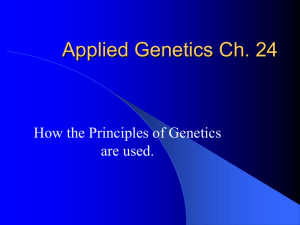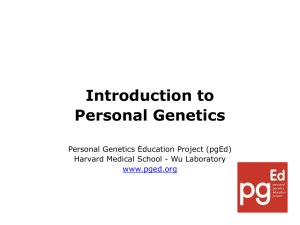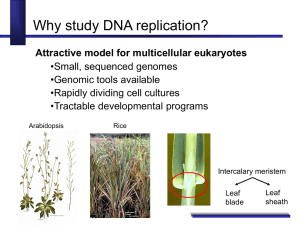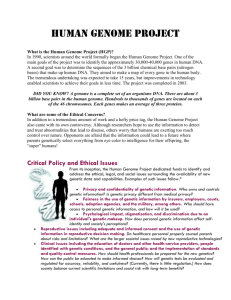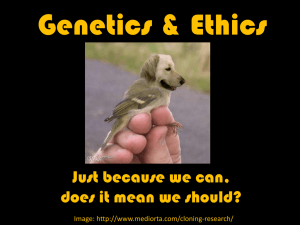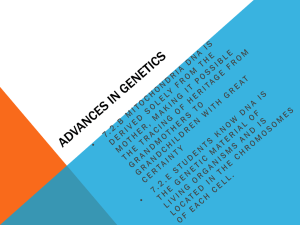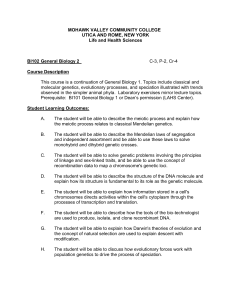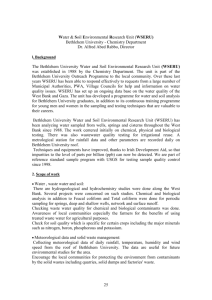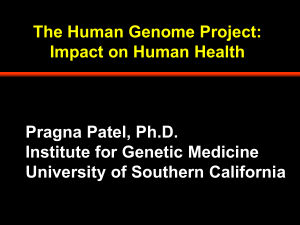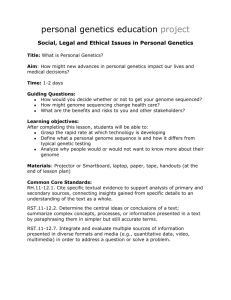Hereditary Research Laboratory (HRL)
advertisement
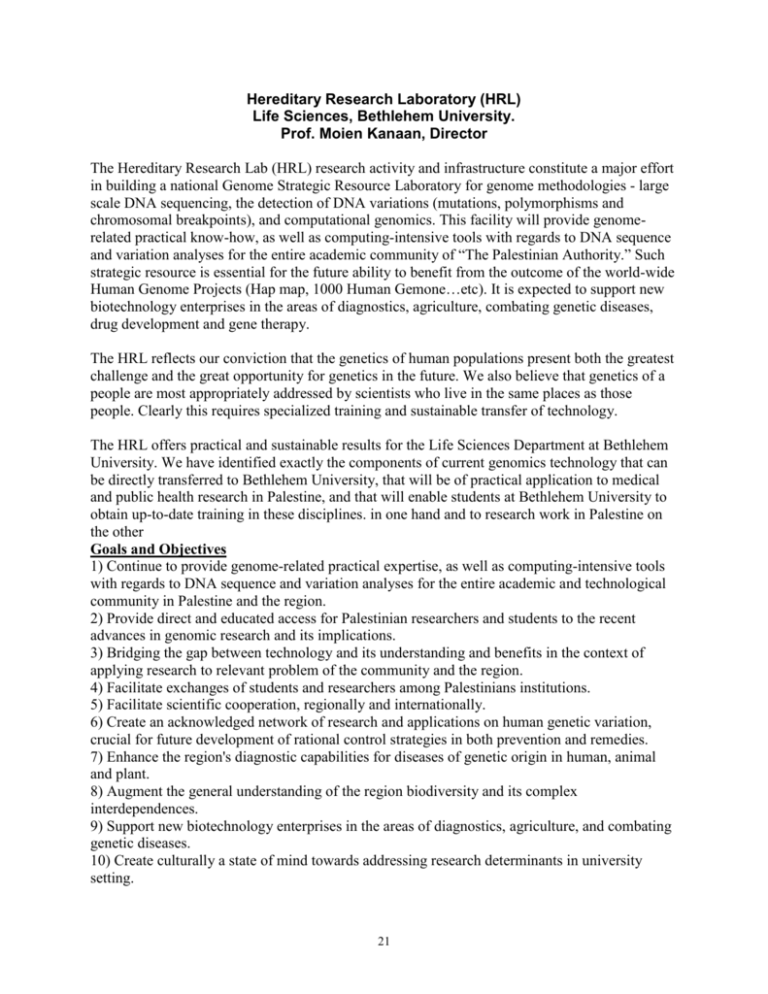
Hereditary Research Laboratory (HRL) Life Sciences, Bethlehem University. Prof. Moien Kanaan, Director The Hereditary Research Lab (HRL) research activity and infrastructure constitute a major effort in building a national Genome Strategic Resource Laboratory for genome methodologies - large scale DNA sequencing, the detection of DNA variations (mutations, polymorphisms and chromosomal breakpoints), and computational genomics. This facility will provide genomerelated practical know-how, as well as computing-intensive tools with regards to DNA sequence and variation analyses for the entire academic community of “The Palestinian Authority.” Such strategic resource is essential for the future ability to benefit from the outcome of the world-wide Human Genome Projects (Hap map, 1000 Human Gemone…etc). It is expected to support new biotechnology enterprises in the areas of diagnostics, agriculture, combating genetic diseases, drug development and gene therapy. The HRL reflects our conviction that the genetics of human populations present both the greatest challenge and the great opportunity for genetics in the future. We also believe that genetics of a people are most appropriately addressed by scientists who live in the same places as those people. Clearly this requires specialized training and sustainable transfer of technology. The HRL offers practical and sustainable results for the Life Sciences Department at Bethlehem University. We have identified exactly the components of current genomics technology that can be directly transferred to Bethlehem University, that will be of practical application to medical and public health research in Palestine, and that will enable students at Bethlehem University to obtain up-to-date training in these disciplines. in one hand and to research work in Palestine on the other Goals and Objectives 1) Continue to provide genome-related practical expertise, as well as computing-intensive tools with regards to DNA sequence and variation analyses for the entire academic and technological community in Palestine and the region. 2) Provide direct and educated access for Palestinian researchers and students to the recent advances in genomic research and its implications. 3) Bridging the gap between technology and its understanding and benefits in the context of applying research to relevant problem of the community and the region. 4) Facilitate exchanges of students and researchers among Palestinians institutions. 5) Facilitate scientific cooperation, regionally and internationally. 6) Create an acknowledged network of research and applications on human genetic variation, crucial for future development of rational control strategies in both prevention and remedies. 7) Enhance the region's diagnostic capabilities for diseases of genetic origin in human, animal and plant. 8) Augment the general understanding of the region biodiversity and its complex interdependences. 9) Support new biotechnology enterprises in the areas of diagnostics, agriculture, and combating genetic diseases. 10) Create culturally a state of mind towards addressing research determinants in university setting. 21
